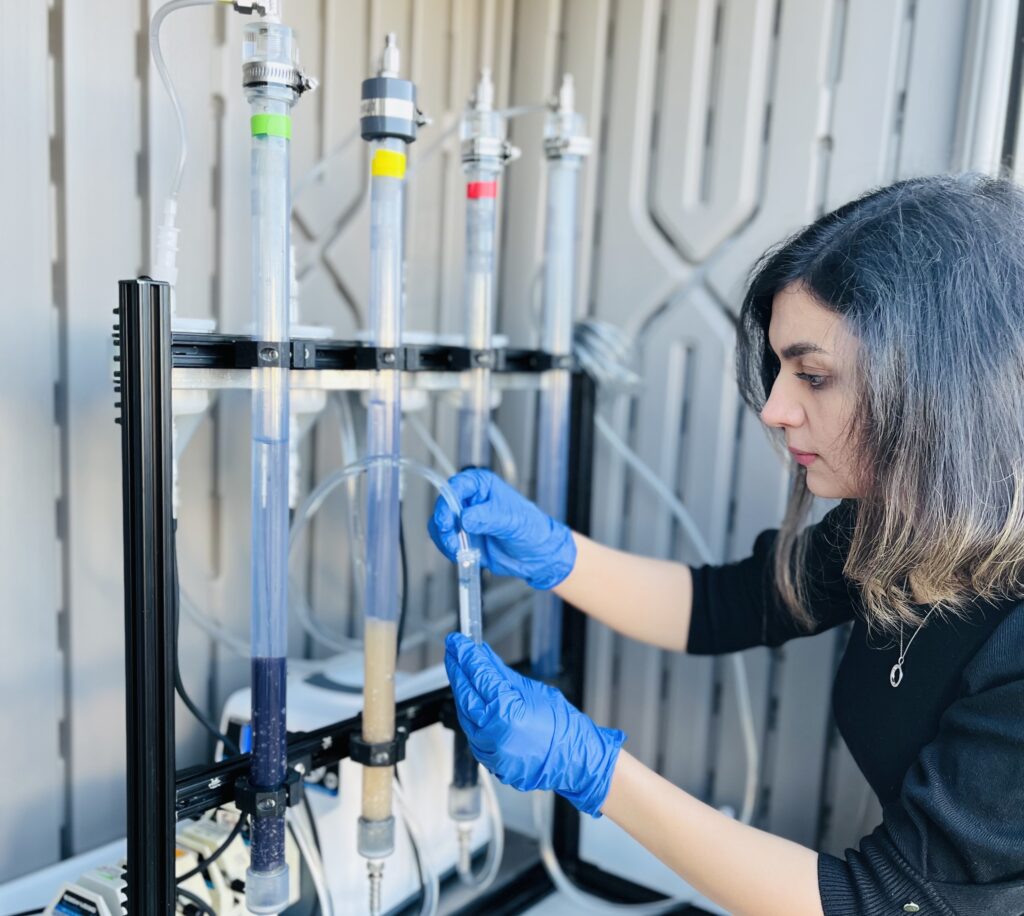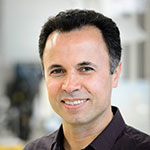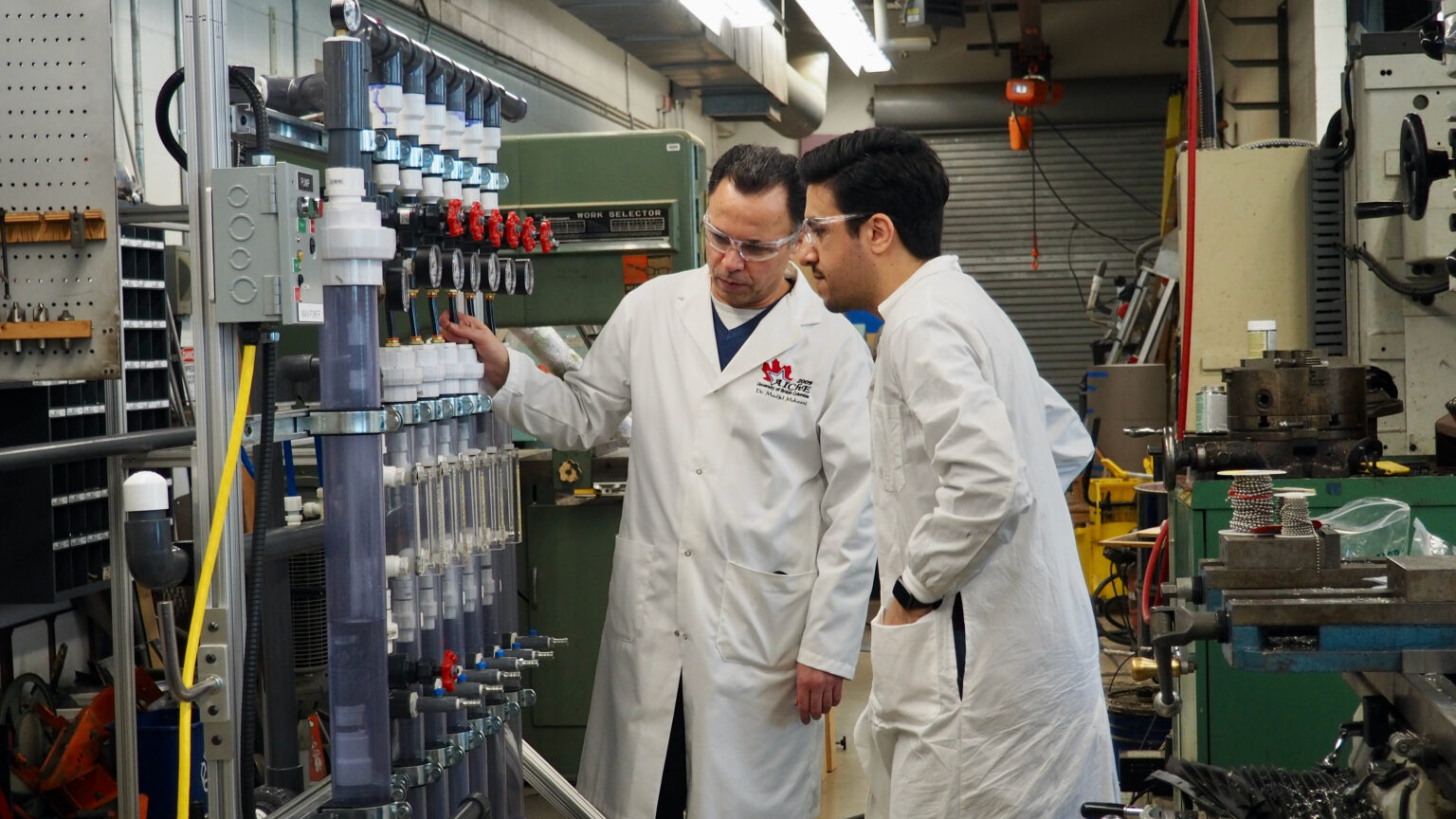

New UBC water treatment zaps ‘forever chemicals’ for good
source link: https://news.ubc.ca/2023/03/22/new-ubc-water-treatment-zaps-forever-chemicals-for-good/
Go to the source link to view the article. You can view the picture content, updated content and better typesetting reading experience. If the link is broken, please click the button below to view the snapshot at that time.

New UBC water treatment zaps ‘forever chemicals’ for good
Science, Health & Technology
Mar 22, 2023 | For more information, contact Lou Corpuz-Bosshart
Engineers at the University of British Columbia have developed a new water treatment that removes “forever chemicals” from drinking water safely, efficiently – and for good.
“Think Brita filter, but a thousand times better,” says UBC chemical and biological engineering professor Dr. Madjid Mohseni, who developed the technology.
Forever chemicals, formally known as PFAS (per-and polyfluoroalkyl substances) are a large group of substances that make certain products non-stick or stain-resistant. There are more than 4,700 PFAS in use, mostly in raingear, non-stick cookware, stain repellents and firefighting foam. Research links these chemicals to a wide range of health problems including hormonal disruption, cardiovascular disease, developmental delays and cancer.
To remove PFAS from drinking water, Dr. Mohseni and his team devised a unique adsorbing material that is capable of trapping and holding all the PFAS present in the water supply.
The PFAS are then destroyed using special electrochemical and photochemical techniques, also developed at the Mohseni lab and described in part in a paper published recently in Chemosphere.
While there are treatments currently on the market, like activated carbon and ion-exchange systems which are widely used in homes and industry, they do not effectively capture all the different PFAS, or they require longer treatment time, Dr. Mohseni explained.
“Our adsorbing media captures up to 99 per cent of PFAS particles and can also be regenerated and potentially reused. This means that when we scrub off the PFAS from these materials, we do not end up with more highly toxic solid waste that will be another major environmental challenge.”
Professor Madjid Mohseni and postdoctoral fellow Dr. Ehsan Banayan Esfahani looking at a pilot water treatment system that will be deployed in British Columbia in April. Photo: Lou Bosshart/UBC
He explained that while PFAS are no longer manufactured in Canada, they are still incorporated in many consumer products and can then leach into the environment. For example, when we apply stain-resistant or repellent sprays/materials, wash PFAS-treated raingear, or use certain foams to put down fires, the chemicals end up in our waterways. Or when we use PFAS-containing cosmetics and sunscreens, the chemicals could find their way into the body.
For most people, exposure is through food and consumer products, but they can also be exposed from drinking water – particularly if they live in areas with contaminated water sources.
Dr. Mohseni, whose research group also focuses on developing water solutions for rural, remote and Indigenous communities, noted: “Our adsorbing media are particularly beneficial for people living in smaller communities who lack resources to implement the most advanced and expensive solutions that could capture PFAS. These can also be used in the form of decentralized and in-home water treatments.”
The UBC team is preparing to pilot the new technology at a number of locations in B.C. starting this month.
“The results we obtain from these real-world field studies will allow us to further optimize the technology and have it ready as products that municipalities, industry and individuals can use to eliminate PFAS in their water,” said Dr. Mohseni.
Interview language(s): English, Farsi
Find other stories about: Department of Chemical and Biological Engineering, Dr. Madjid Mohseni, Faculty of Applied Science, forever chemicals, Health Innovation and Community Wellbeing, PFAS, water treatment
Contact
Lou Corpuz-Bosshart
UBC Media Relations
Tel: 604-822-2048
Cel: 604-999-0473
Email: [email protected]
Recommend
-
 10
10
Forever In The BloodRegular Blood Donations Can Reduce Toxic Forever Chemicals in the Bloodstream: StudyBy
-
 14
14
Home ...
-
 12
12
-
 6
6
Scientists Achieve the Impossible, Safely Destroy Toxic ‘Forever Chemicals’The "forever" in "forever chemicals" is now a lot shorter than we thought thanks to a new method of safely breaking them down.
-
 11
11
Breakdown — Scientists are figuring out how to destroy “forever chemicals” One class of PFAS chemicals can be broken down into harmless compounds with lye....
-
 10
10
Home ...
-
 12
12
‘Forever Chemicals’ Found in Every Umbilical Cord Blood Sample in Global Study This site may earn affiliate commissions from the links on this page.
-
 10
10
Health'Forever Chemicals' Are Everywhere. Is There a Way to Avoid Them?The EPA now calls PFAS 'hazardous substances,' but t...
-
 6
6
ConservationAlligators Might Be Getting Sick From 'Forever Chemicals'PFAS pollution is thought to cause immune disrup...
-
 6
6
safe to drink — Getting “forever chemicals” out of drinking water is expensive Can water utilities meet the EPA's new standard for PFAS? ...
About Joyk
Aggregate valuable and interesting links.
Joyk means Joy of geeK


